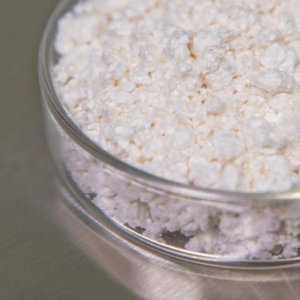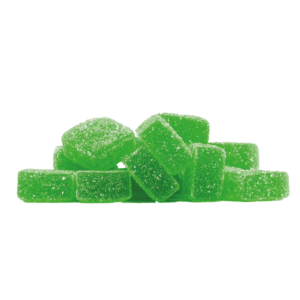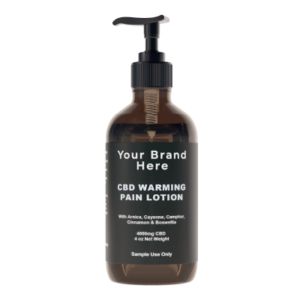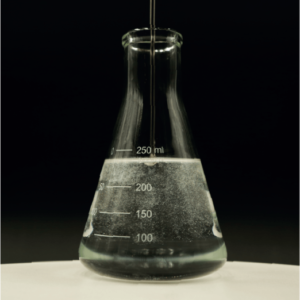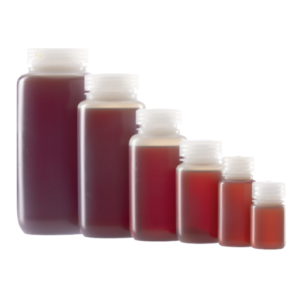FAQs
Frequently Asked Questions
Cannabinoids, Hemp and
Bulk Ingredients
What is CBD?
CBD stands for cannabidiol, which is a naturally occurring compound found in the cannabis plant. It is one of the many cannabinoids present in cannabis, but it does not cause the psychoactive effects commonly associated with marijuana.
CBD has gained significant attention in recent years due to its potential therapeutic properties. It is believed to interact with the body’s endocannabinoid system, which plays a role in regulating various physiological processes such as pain sensation, mood, appetite, and immune function.
Research suggests that CBD may have several potential health benefits, including:
1. Pain relief: CBD has been studied for its potential to alleviate chronic pain, including neuropathic pain and pain associated with conditions like arthritis.
2. Anxiety and depression management: Some studies indicate that CBD may help reduce anxiety and depression symptoms, although further research is needed to determine its effectiveness.
3. Neuroprotective properties: CBD has shown promise in protecting the nervous system and may have potential in treating neurological disorders such as epilepsy and multiple sclerosis.
4. Anti-inflammatory effects: CBD may have anti-inflammatory properties, which could make it useful in managing conditions characterized by inflammation, such as acne or inflammatory bowel disease.
5. Sleep disorders: CBD may have a calming effect that could help improve sleep quality in individuals with insomnia or sleep disorders.
It’s important to note that while CBD shows potential therapeutic benefits, more research is needed to fully understand its effects and determine appropriate dosages. It’s always advisable to consult with a healthcare professional before using CBD or any other dietary supplement. Additionally, the legal status of CBD varies across countries and regions, so it’s important to be aware of local regulations.
What are the benefits of CBD?
CBD, or cannabidiol, has been studied for its potential therapeutic benefits. While further research is still needed to fully understand CBD’s effects, here are some of the potential benefits that have been suggested:
1. Pain relief: CBD may help alleviate chronic pain by interacting with the endocannabinoid system, which is involved in regulating pain sensation.
2. Anxiety and depression management: Some studies indicate that CBD may have anxiolytic and antidepressant properties, potentially reducing anxiety and depression symptoms. However, more research is needed to determine its effectiveness and optimal dosages.
3. Neuroprotective properties: CBD has shown promise in protecting the nervous system.
4. Anti-inflammatory effects: CBD has been studied for its potential anti-inflammatory properties, which could make it useful in managing conditions characterized by inflammation, such as arthritis or inflammatory bowel disease.
5. Sleep disorders: CBD may have a calming effect that could help improve sleep quality and address sleep disorders like insomnia. It may also alleviate symptoms of REM sleep behavior disorder and excessive daytime sleepiness.
6. Skin conditions: CBD has been investigated for its potential in managing various skin conditions, including acne, psoriasis, and eczema, due to its anti-inflammatory and sebum-regulating properties.
7. Potential for substance abuse and addiction: Preliminary studies suggest that CBD may have a role in reducing drug cravings and withdrawal symptoms in individuals with substance use disorders.
It’s important to note that the research on CBD is still evolving, and while these potential benefits are promising, more rigorous scientific studies are needed to validate these claims and determine the optimal dosages and methods of administration. It’s always advisable to consult with a healthcare professional before using CBD or any other dietary supplement.
Is CBD legal?
Yes. CBD is federally legal in the United States ONLY if the THC content is below 0.3%. Some states have various buying restrictions and you need to check with each particular state to confirm their laws pertaining to CBD.
How is CBD Oil Made?
CBD oil is typically made through a process called extraction, which involves obtaining the cannabinoid-rich resin from the cannabis plant and then diluting it with a carrier oil. There are different methods of extraction, but the two most common ones are:
1. CO2 extraction: This method utilizes carbon dioxide (CO2) under high pressure and low temperature to extract CBD and other cannabinoids from the plant material. CO2 acts as a solvent in this process, selectively extracting the desired compounds without leaving behind harmful residues. CO2 extraction is considered a safe and efficient method, resulting in high-quality CBD oil.
2. Solvent extraction: This method involves using a solvent, such as ethanol, butane, or isopropyl alcohol, to dissolve the cannabinoids from the plant material. The solvent is then evaporated, leaving behind the concentrated CBD extract. However, solvent extraction can carry the risk of residual solvents if not properly removed, which can be potentially harmful.
After the extraction process, the CBD extract is mixed with a carrier oil, such as hemp seed oil, coconut oil, or olive oil, to create CBD oil. The carrier oil serves to dilute the concentrated CBD extract, making it easier to consume and providing additional health benefits. The resulting CBD oil can then be consumed orally, applied topically, or used in various other forms such as capsules, tinctures, or edibles.
It’s worth noting that the quality and purity of CBD oil can vary depending on the extraction method used and the overall manufacturing process. Reputable manufacturers often provide third-party lab testing to verify the potency and purity of their CBD products.
What other ingredients are in CBD Oil?
Many tinctures and other CBD products also have carrier oils added to them after processing. CBD oils that do not have carrier oils are also available from processors for wholesale and product development purposes.
How Do You Make CBD Oil from Isolate Powder?
Why Does CBD Crystallize?
The degree of concentration is important when it comes to crystallization. The standard is that CBD distillate must be at least 80% purity to crystallize on it’s own. If you experience that, then it means that your CBD is most likely above 85%. Not necessarily a negative in terms of purity.
What is the difference between CBD and THC?
What is the difference between Hemp and Marijuana?
The defining difference between hemp and marijuana is their psychoactive component: tetrahydrocannabinol, or THC. Hemp has 0.3% or less THC, meaning hemp-derived products don’t contain enough THC to create the “high” traditionally associated with marijuana.
Are there any side effects of CBD?
CBD is generally well-tolerated, but some individuals may experience side effects such as dry mouth, drowsiness, changes in appetite, or gastrointestinal issues. It’s advisable to consult with a healthcare professional before using CBD, especially if you have any underlying health conditions or are taking medications.
What is the difference between Broad Spectrum and Full Spectrum?
Full Spectrum Oil is processed from THC compliant hemp (below 0.3% THC) and contains the full spectrum of cannabinoids, terpenes, flavonoids and other beneficial plant compounds.
What is CBD Isolate?
How do you use CBD Isolate?
The powder also turns to oil when heated and you can add it to a carrier oil (MCT, Hempseed, Olive Oil, etc) to make a tincture or topical. It is also added to creams, balms and other cosmetics.
This means CBD product developers and brands can use +99% Pure CBD Isolate Powder in any kind of products from edibles to topicals, tinctures and more.
What is water soluble CBD?
How do you consume water soluble CBD?
Water Soluble CBD can be consumed by mixing in beverages, foods, or as a tincture. In addition water-soluble CBD oil can be crafted into any edible products like gummies, candy, chocolate and any other innovative edible product recipe.
What is CBN Isolate?
CBN (Cannabinol) is a cannabinoid that is produced from the degradation of THC when the harvested plant is subjected to high temperatures (sunlight) and exposed to air (oxygen). This occurs over time as the THC natural degrades into CBN. Many of the properties of THC are attributed to CBN: however, the psychoactive effects of CBN are negligible (about 1/10th).
What are the Benefits of CBN?
CBN, or cannabinol, is another cannabinoid found in the cannabis plant. While research on CBN is limited compared to other cannabinoids like CBD or THC, it has been studied for its potential benefits. Here are some of the suggested benefits of CBN:
1. Sleep aid: CBN has been reported to have sedative effects, making it potentially helpful for promoting sleep. It may help with insomnia and improving sleep quality, although more research is needed to fully understand its sleep-inducing properties.
2. Pain relief: CBN may have analgesic properties and could potentially help alleviate pain. It may interact with the body’s endocannabinoid system to modulate pain signaling, although further research is necessary to establish its efficacy.
3. Anti-inflammatory effects: CBN has shown promise as an anti-inflammatory agent in some studies. It may help reduce inflammation, which is associated with various conditions like arthritis or inflammatory bowel disease.
4. Appetite stimulation: CBN has been reported to have appetite-stimulating effects, which may be useful for individuals with decreased appetite or certain medical conditions.
It’s important to note that much of the research on CBN is in its early stages, and more studies are needed to fully understand its potential benefits, mechanisms of action, and optimal uses. Additionally, it’s always advisable to consult with a healthcare professional before using CBN or any other dietary supplement.
What is CBC Isolate?
CBC (cannabichromene) is one of the most abundant cannabinoids found in the hemp plant. CBC, like CBD and THC, also stems from the precursor CBGA. It converts through the enzyme process to CBCA and through decarboxylation, either over time or quickly, if exposed to heat; it will lose a molecule of CO2 and become CBC. CBC also shows promise for therapeutic benefits similar to CBD. CBC is also non-psychoactive.
What are the Benefits of CBC?
CBC (Cannabichromene) isolate is a specific form of cannabinoid extract derived from the cannabis plant, where CBC is the dominant compound. Based on what is known about CBC in general, it is believed to offer some potential benefits, which may apply to CBC isolate as well:
Pain Relief: CBC is thought to have analgesic properties, meaning it may help reduce pain and inflammation. It interacts with the body’s endocannabinoid system, which is involved in regulating pain and other physiological processes.
Anti-inflammatory Effects: Like other cannabinoids, CBC may have anti-inflammatory properties that could be beneficial for conditions involving inflammation, such as arthritis or inflammatory bowel disease.
Neuroprotective Potential: Some studies suggest that CBC may have neuroprotective effects, meaning it could potentially help protect brain cells from damage or degeneration.
Antidepressant and Anti-anxiety Effects: CBC has been studied for its potential mood-enhancing properties and may have a role in alleviating symptoms of depression and anxiety.
Acne Treatment: Early research indicates that CBC, along with other cannabinoids, might be effective in treating acne due to its anti-inflammatory properties and impact on sebaceous glands.
It’s important to note that research on CBC and other cannabinoids is still in its early stages, and many of the studies have been conducted on animals or in laboratory settings. More clinical research is needed to establish the safety and efficacy of CBC isolate for specific medical conditions.
What is CBG Isolate?
What are the Benefits of CBG?
CBG, or cannabigerol, is a cannabinoid found in the cannabis plant. While research on CBG is still in its early stages, it has shown potential in several areas. Here are some of the suggested benefits of CBG:
1. Potential anti-inflammatory properties: CBG has been studied for its anti-inflammatory effects, which may make it useful in managing conditions associated with inflammation, such as inflammatory bowel disease or arthritis. It may interact with the body’s endocannabinoid system to modulate inflammatory responses.
2. Neuroprotective effects: CBG has shown promise in protecting neurons and the nervous system.
3. Appetite stimulant: CBG has been reported to have appetite-stimulating effects, similar to THC. This property could be beneficial for individuals with decreased appetite due to medical conditions or treatments.
It’s important to note that while CBG shows promise, more extensive research is required to fully understand its effects, mechanisms of action, and therapeutic potential. Additionally, it’s advisable to consult with a healthcare professional before using CBG or any other dietary supplement.
What is CBDV Isolate?
What are the benefits of CBDV Isolate?
Based on the available research, CBDV may offer some potential advantages:
Neuroprotective Effects: Like other cannabinoids, CBDV may have neuroprotective properties that could help protect the brain from damage or degeneration.
Anti-Nausea and Antiemetic: Some studies suggest that CBDV may help alleviate nausea and vomiting, making it potentially useful for individuals undergoing chemotherapy or experiencing nausea related to other medical conditions.
Anti-inflammatory Effects: CBDV, like other cannabinoids, may have anti-inflammatory properties that could be beneficial for conditions involving inflammation, such as arthritis or inflammatory bowel disease.
Bone Health: There is limited research suggesting that CBDV may promote bone health by enhancing the differentiation of bone-forming cells, but further investigation is required to understand its full potential in this area.
It is important to note that most of the research on CBDV has been conducted on animals or in preclinical settings. More human clinical trials are needed to establish the safety and efficacy of CBDV isolate for specific medical conditions. If you are considering using CBDV isolate or any other cannabinoid product for medical purposes, it’s crucial to consult with a healthcare professional who is knowledgeable about cannabis-based treatments. Additionally, ensure compliance with the laws and regulations related to cannabis products in your country or state.
What is THCV Isolate?
Although THCV (Tetrahydrocannabivarin) is similar to THC there are several key differences. The main difference is the origin within the plant. THCV has a different parent cannabinoid, known as CBGVA (cannabigerovarin acid), than THC, CBD and others. Like THC, THCV is psychoactive, however, the effects wear off faster.
What are the benefits of THCV Isolate?
Based on the available research, THCV may offer some potential advantages:
Appetite Suppressant: THCV has been studied for its potential role in suppressing appetite, which may be useful for individuals aiming to manage their weight or for medical conditions associated with increased appetite.
Neuroprotective Properties: Like other cannabinoids, THCV may have neuroprotective properties that could be beneficial for protecting brain cells from damage or degeneration.
Stimulant and Energizing Effects: THCV is reported to have stimulant-like properties, which might lead to increased alertness and energy levels. However, these effects can vary from person to person and may not be desirable for everyone.
Bone Health: There is limited research suggesting that THCV may promote bone health by enhancing the differentiation of bone-forming cells, but further investigation is required to understand its full potential in this area.
Anti-inflammatory Properties: Like many other cannabinoids, THCV may possess anti-inflammatory properties that could be beneficial for conditions involving inflammation, such as arthritis or inflammatory bowel disease.
It is crucial to emphasize that the research on THCV is still in its early stages, and many of the studies have been conducted on animals or in laboratory settings. More human clinical research is necessary to establish the safety and efficacy of THCV isolate for specific medical conditions.
If you are considering using THCV isolate or any other cannabinoid product for medical purposes, it’s essential to consult with a healthcare professional familiar with cannabis-based treatments. Additionally, ensure compliance with the laws and regulations related to cannabis products in your country or state.
What is CBDA Isolate?
What are the benefits of CBDA Isolate?
Potential benefits of CBDA may include:
Anti-inflammatory Properties: Some studies indicate that CBDA may have anti-inflammatory effects, which could be beneficial for various inflammatory conditions.
Nausea and Vomiting Relief: CBDA has shown promise in preclinical studies as a potential antiemetic, meaning it might help alleviate nausea and vomiting.
Anxiety and Depression: Early research suggests that CBDA might have anxiolytic and antidepressant properties, but more studies are needed to confirm its potential in this area.
What is CBGA Isolate?
CBGA (Cannabigerolic Acid) isolate is a specific form of cannabinoid extract derived from the cannabis plant, where CBGA is the dominant compound. CBGA is the precursor to other major cannabinoids, including CBD (Cannabidiol), THC (Tetrahydrocannabinol), and CBC (Cannabichromene). In the early stages of the cannabis plant’s growth, it synthesizes CBGA, which then serves as the starting point for the production of various cannabinoids through enzymatic processes.
What are the benefits of CBGA Isolate?
CBGA is an area of ongoing research, and its potential benefits are not as well-studied or understood as other major cannabinoids like CBD or THC. However, CBGA is thought to have some potential therapeutic properties:
Anti-inflammatory Effects: CBGA may have anti-inflammatory properties, which could be beneficial for various inflammatory conditions.
Neuroprotective Potential: Like other cannabinoids, CBGA may have neuroprotective effects that could potentially protect the brain from damage or degeneration.
Pain Relief: CBGA may have analgesic properties and could potentially help alleviate pain and discomfort.
What is a Varin?
The two most well-known varins are THCV (Tetrahydrocannabivarin) and CBDV (Cannabidivarin). Here’s a brief overview of each:
THCV (Tetrahydrocannabivarin): THCV is structurally similar to THC but has some distinct differences in its effects. It is found in trace amounts in certain cannabis strains, primarily those originating from certain regions of Africa and Asia. THCV is often described as having a more stimulating and energizing effect compared to THC, and it may have potential appetite-suppressing properties. Some research also suggests that THCV may have anticonvulsant and neuroprotective effects.
CBDV (Cannabidivarin): CBDV is structurally similar to CBD, but it differs in its molecular side chain. It is found in varying amounts in different cannabis strains, and its concentration can be affected by factors like plant genetics and growing conditions. CBDV has been studied for its potential therapeutic properties, including anti-epileptic effects. Some research indicates that CBDV may have a role in managing certain types of epilepsy and other neurological conditions.
As with other minor cannabinoids, research on varins is still relatively limited compared to THC and CBD. However, they are gaining increasing interest from the scientific community due to their potential therapeutic properties. As research progresses, we may learn more about the specific benefits and applications of varins in the CBD industry.
What Are Cannabis Terpenes and What Do They Do?
Terpenes are part of the beneficial natural cannabinoid synergy of the cannabis and hemp plant. Terpenes can be added to a variety of products to create unique scents, flavors, and overall experiences.
What Are The Different Stages Of CBD Crude Oil?
The CBD crude oil can then be refined further by what is called winterization, basically an alcohol wash and then it is frozen. This process removes the organic plant compounds like lipids, waxes and chlorophyll. The result is a pure, potent, transparent distillate.
What Is the Difference Between Hemp Flower & Hemp Biomass?
What Is The Benefit Of Hand Harvested/ Hand Dried Hemp Vs. Machine Harvested/ Dried Hemp?
For large hemp farms, mechanical harvesting has become more common and adapted cutters or cutter-binders are used. The mechanical process can be used to separate the harvest for a different form of processing. The upper part of the plant with the leaves can be separated and collected for cold pressing and the lower part can be used for fiber or other uses and can be left on the field.
What is a COA?
Why Are COAs Important?
How do you pick your cannabinoid supplier?
Legality and Compliance
Quality and Testing
Reputation and Reviews
Product Variety
Sustainability and Ethical Practices
Customer Service and Support
Pricing and Payment Options
Secure and Discreet Shipping
White Label Program
What is our white label program about?
Can I customize white label products?
How do you find a reliable white label provider?
Define Your Requirements
Research and Industry Knowledge
Evaluate Product Quality
Check References and Reviews
Transparency and Communication
Scalability and Capacity
Compliance and Certifications
Contract and Legal Considerations
Visit the Facilities
What is the minimum quantity you can purchase per SKU?
What is the timeline for Custom Product Development?
Once the development period is complete (generally 4-6 weeks ) we will finalize a production timeline, packaging, deposits and go to production.
Functional Mushrooms
What are functional mushrooms?
Functional mushrooms, also known as medicinal mushrooms or adaptogenic mushrooms, are a group of mushrooms that contain bioactive compounds with potential health benefits. These mushrooms have been traditionally used in various cultures for their medicinal properties and are now gaining popularity as natural health supplements.
What are some common types of functional mushrooms?
What are the potential health benefits of functional mushrooms?
How can functional mushrooms be consumed?
Are functional mushrooms safe to consume?
Can functional mushrooms be used as a substitute for medical treatment?
Are functional mushrooms suitable for everyone?
What are the benefits of Lions Mane Mushrooms?
What are the benefits of Cordyceps Mushrooms?
What are the benefits of Reishi Mushrooms?
Glossary of terms: Hemp Manufacturing
